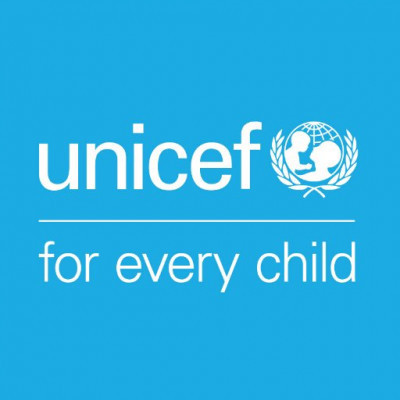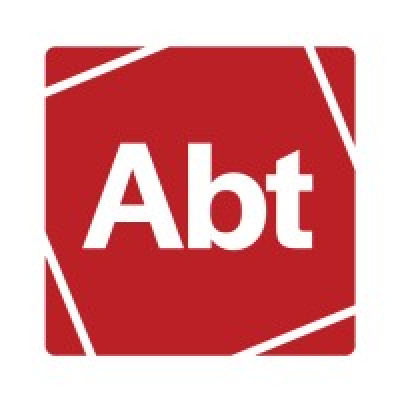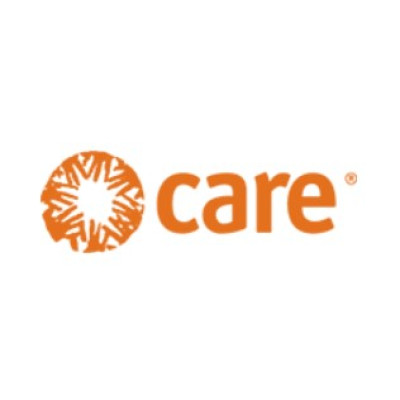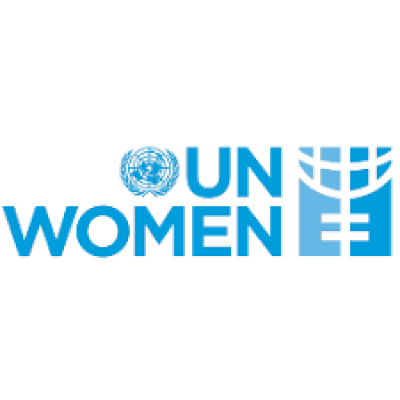Details
Description
Background
UNDP is committed to achieving workforce diversity in terms of gender, nationality and culture. Individuals from minority groups, indigenous groups and persons with disabilities are equally encouraged to apply. All applications will be treated with the strictest confidence.
UNDP does not tolerate sexual exploitation and abuse, any kind of harassment, including sexual harassment, and discrimination. All selected candidates will, therefore, undergo rigorous reference and background checks.
Timor-Leste is highly vulnerable to climate changes, particularly increasing variability of rainfall and extreme weather events. Lives and livelihoods in the remote interior of the country and coastal regions are both highly exposed. Impacts of intensified extreme events include damage and degradation of decentralized small-scale critical infrastructure, particularly water supply and drainage structures, embankments, and feeder roads and bridges. Damages leave rural populations isolated, lacking basic services.
Government of Timor-Leste (GoTL) with the support of UNDP received funding from the Green Climate Fund (GCF) to implement the “Safeguarding rural communities and their physical assets from climate induced disasters in Timor-Leste” project from 2020 to 2026. The project commenced in March 2020 and is in its third year of implementation. The ongoing activities include the comprehensive multi-hazard risk assessment for the whole country and covers hazards such as flood, landslides, erosion and droughts, setting up on the spatial data-based system and related trainings on physical asset mapping are also in progress. The project is represented by the Secretariat of State of Environment (SEA), under the Coordinating Minister of Economic Affairs, as the Implementing Partner and the main responsible parties/ministries are the Ministry of State Administration, Ministry of Agriculture and Fisheries, Ministry of Public Works and the Secretary of State for Civil Protection (SSCP).
The objective of the project is to safeguard vulnerable communities and their physical assets from climate change-induced disasters. It aims to address existing institutional, financial and legislative barriers, increasing the climate resilience of vulnerable small-scale rural infrastructure. The project targets 175,840 direct beneficiaries, an estimated 15% of the total population. Benefits include increased climate resilience for small-scale infrastructure as well as 300 ha of reforested and rehabilitated land to buffer against climate-induced disasters.
This will be achieved by delivering the following results:
Strengthening the capacity of mandated institutions to assess and manage climate risks in order to maintain local infrastructure services. GCF-funded activities will embed new skills, technologies, and innovative methods in climate risk identification and mitigation processes. Monitoring and recording of climate risk information will be enhanced, and these data will be integrated into policies, standards, guidelines, and long-term investment planning for small-scale rural infrastructure;
Implementing climate resilient building measures to improve small-scale rural infrastructure in vulnerable areas. GCF funds will assist in the development and implementation of catchment management strategies, supporting long-term resilience and climate risk reduction via landscape restoration and enhanced land stability, particularly in vulnerable catchments where small-scale infrastructure is present.
The project, ‘Safeguarding Rural Communities and their Physical Assets from Climate Induced Disasters in Timor-Leste” is intended to strengthen the capacities of the mandated institutions for disaster risk management and resilience-building and to address the gaps in policy, regulations, and institutional capacity to mitigate and adapt to climate change induced disasters, deliver climate resilient small-scale rural infrastructure and the provision of timely and adequate protection and support services to citizens affected by climate induced disasters. The responsible party and main counterpart related to the climate risk information systems to be developed and services to be provided is the Secretary of State for Civil Protection under the Ministry of Interior.
Duties and Responsibilities:
The DRM Specialist will work under the guidance of the UNDP Timor-Leste Country Office (CO), and in close collaboration with the project team together with the relevant national and municipal government counterparts. Under the direct supervision of the Programme Analyst/Head of Unit and overall supervision of the Resident Representative of UNDP.
To support implementation of the project, UNDP seeks to engage the services of an International DRM Specialist for a period of twelve (12) months. S/he will facilitate strong collaboration and dialogue among key DRM stakeholders together with UNDP, Secretary of State for Civil Protection (SSCP) and Secretary of State for Environment (SSE). The DRM Specialist will ensure the execution of quality and coherent policy and project advisory services as well as alignment with the requirements of the donor requirements and the project design, national legislation, strategy and plans, and s/he advances the mission of UNDP and increases the credibility and recognition in this thematic area.
Summary of Key Functions and Responsibilities:
Support Project Implementation;
Policy Development and Policy Advisory services;
Building Partnerships;
Knowledge Management and Advocacy for DRM;
Support Project Implementation:
Support the development and delivery of climate risk information services and vulnerability mapping to all sectoral institutions;
The project is currently undertaking the countrywide Multi Hazard Risk Assessment which is expected to be delivered by the end of 2022. The DRM Specialist will be responsible for coordinating the ongoing work on the multi-hazard risk assessment undertaken by the selected company;
Operationalization of the DRM application and database system for the storage, analysis and management of disaster data to inform climate risk reduction planning and budgeting;
Ensure that the spatial database system (SDI) being developed and established with SSCP is fully operationalized and sustained;
Support capacity development planning to incorporate climate-risk considerations into technical feasibility studies for infrastructure projects to optimize feasibility and safeguard of the investments;
Facilitate trainings and related capacity development for adoption of the GIS-based socio-economic risk model as a tool for risk assessment (including potential physical damage and economic losses modelling) and cost-benefit analysis;
Provide TA support to the relevant Government counterparts for updating of the asset management database and physical assets loss and damage monitoring and accounting
Policy Development and Policy Advisory services:
Advise and support coordination and implementation of the National DRM Policy on Disaster Preparedness and Management and its complementation/link with the GCF project;
Conceptualize and recommend innovative approaches and solutions in the thematic area to improve project and programme delivery including achieving the annual co-financing commitments for the project under Output 1;
Prepare technical and policy briefs to embed the systematic use of climate hazard and risk information and MHRA model developed under Activity 1.1 across relevant sectors in development of projects identification and appraisal processes;
TA support to incorporate and mainstream gender equality and social inclusion in the thematic interventions related to the project work.
Building Partnerships:
Support coordination of the project and programme efforts with other relevant partners including government counterparts and development partners;
Identify specific needs and demands of the project and help build partnerships at the national and sub-national levels to meet those needs;
Create synergies between relevant stakeholders involved in DRM efforts in Timor-Leste, while promoting national ownership of coordination processes through increased participation of national and local stakeholders;
Support the project and programme to facilitate the flow of information between key Government partners of the project and with other Government and development partners and UNCT on DRM issues.
Knowledge Management and Advocacy for DRM:
In collaboration with UNDP CO, SSCP and SSE, support the project team to engage with national partners and develop/implement resource mobilization plan under corporate guidelines, including to fulfil corporate and donor reporting, advocacy and information-sharing requirements;
Represent and share the project results both at national, regional and at external events as required by the project and UNDP CO
Provide substantive inputs and support to the UNDP CO and the project related to the national external partnerships in the area of work;
Support to provision and application of the latest policy guidelines and technical standards
Ensures the establishment of a DRM knowledge culture with effective advocacy tools
Share knowledge on disaster management and disaster resilience, including through case studies and good practices;
Support the project team and contribute to the periodic progress reporting requirements of the project and other UNDP progress reports related to the climate risk information system and services.
Competencies:
Core:
Achieve Results: LEVEL 3: Set and align challenging, achievable objectives for multiple projects, have lasting impact ;
Think Innovatively: LEVEL 3: Proactively mitigate potential risks, develop new ideas to solve complex problems;
Learn Continuously: LEVEL 3: Create and act on opportunities to expand horizons, diversify experiences;
Adapt with Agility: LEVEL 3: Proactively initiate and champion change, manage multiple competing demands;
Act with Determination: LEVEL 3: Think beyond immediate task/barriers and take action to achieve greater results;
Engage and Partner: LEVEL 3: Political savvy, navigate complex landscape, champion inter-agency collaboration;
Enable Diversity and Inclusion: LEVEL 3: Appreciate benefits of diverse workforce and champion inclusivity.
UNDP People Management Competencies can be found in the dedicated site
Cross-Functional & Technical competencies (insert up to 7 competencies)
Business Management:
Communication - Ability to communicate in a clear, concise and unambiguous manner both through written and verbal communication; to tailor messages and choose communication methods depending on the audience; Ability to manage communications internally and externally, through media, social media and other appropriate channels;
Partnership Management - Ability to research and turn information into useful knowledge, relevant for content, or responsive to a stated need;
Result-Based Management - Ability to manage programmes and projects with a focus at improved performance and demonstrable results;
Risk Management - Ability to identify and organize action around mitigating and proactively managing risks;
Business Direction & Strategy:
Negotiation and Influence -Ability to reach an understanding, persuade others, resolve points of difference, gain advantage in the outcome of dialogue, negotiates mutually acceptable solutions through compromise and creates “win-win” situations;
Effective Decision Making - Ability to take decisions in a timely and efficient manner in line with one’s authority, area of expertise and resources;
Business Development
Knowledge generation - Ability to research and turn information into useful knowledge, relevant for content, or responsive to a stated need
Required Skills and Experience
Education:
Advanced/ MSc. Degree in Disaster Risk Management, Environment, Geography, Hydrology, Engineering or in field relevant to climate change adaptation and/or disaster risk management combined with relevant professional training, certification and experience.
Experience:
At least 5 years of professional work experience providing policy advice and programme support in the general area of Disaster Risk Reduction and Disaster Risk Management, preferably in the Asia-Pacific region in different development contexts;
Experience working in developing country settings is required and experience in crisis contexts is an asset;
Previous experience working on projects with governments and/or development partners;
Experience in climate change adaptation and mitigation, and working with vertical funds (GEF, GCF) in Small Island Developing States (SIDS) country context is desired;
Previous expertise with the UN system or working experience in Timor-Leste is an advantage;
Ability to manage complex relationships through pathways of knowledge exchange, capacity development, relationships management and strategic engagement;
Excellent analytical, oral and written communication skills;
Drive for results with limited supervision, and ability to work in fast-paced environment;
Hands-on, action-oriented and solution-oriented approach, with enthusiasm and commitment to international development;
Similar experience working in developing country context;
People Management: Ability to improve performance and satisfaction;
Communication: Ability to listen, adapt, persuade and transform;
Delivery: Ability to get things done with resources allocated.
Language Requirement:
English language – excellent written and oral communication skills;
In addition to excellent command of English, ability to communicate in Bahasa Indonesia, Portuguese or Tetum will be an advantage.
Professional Certificates:
Relevant professional certifications related to DRM, DRR considered an asset.





